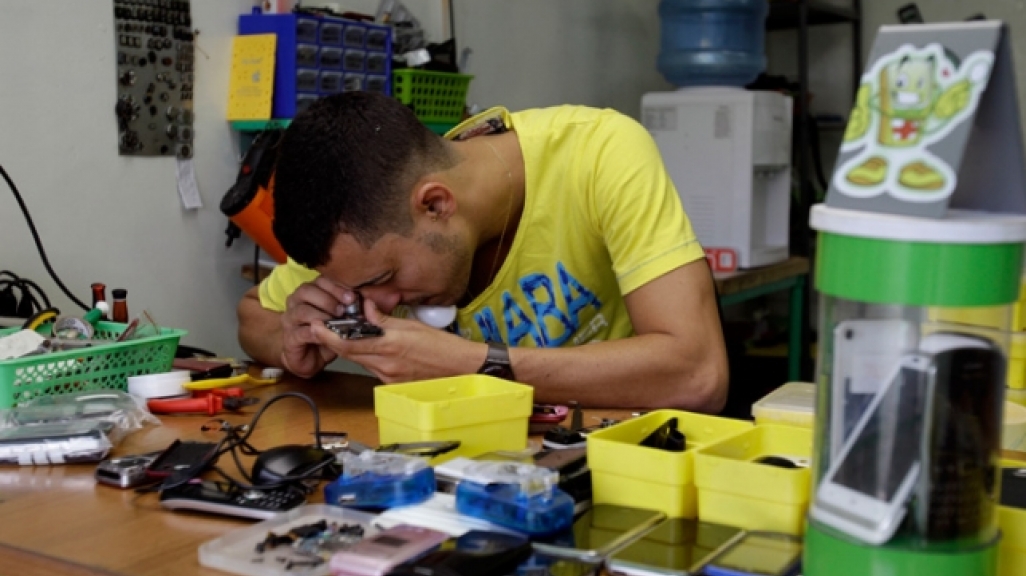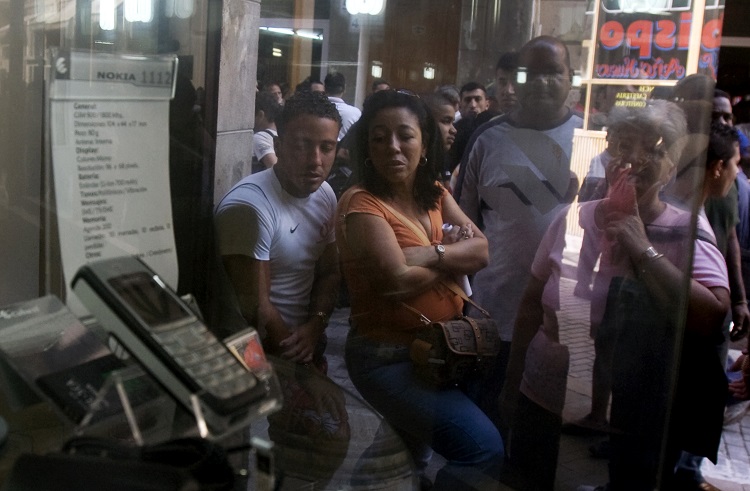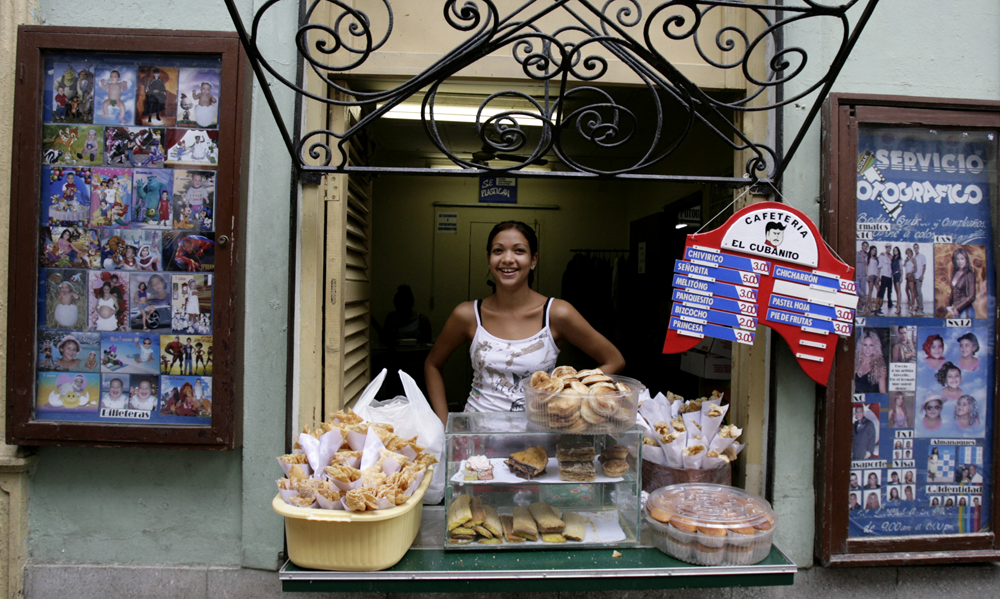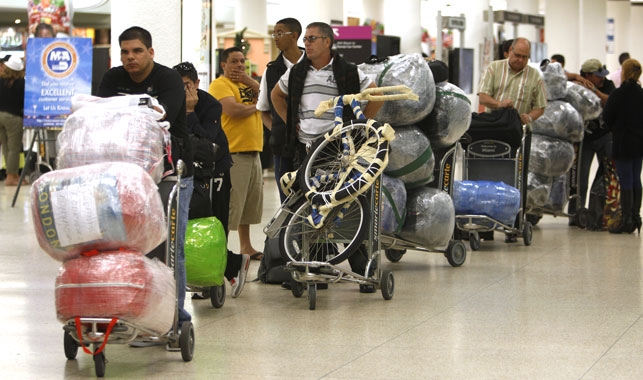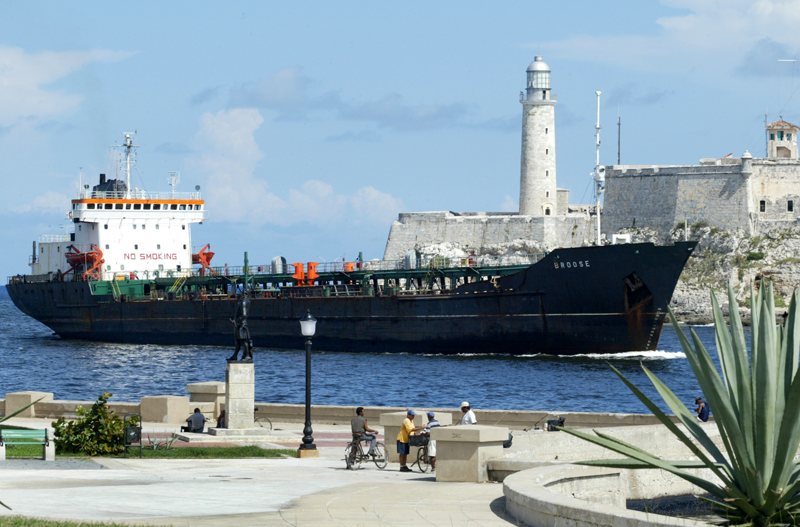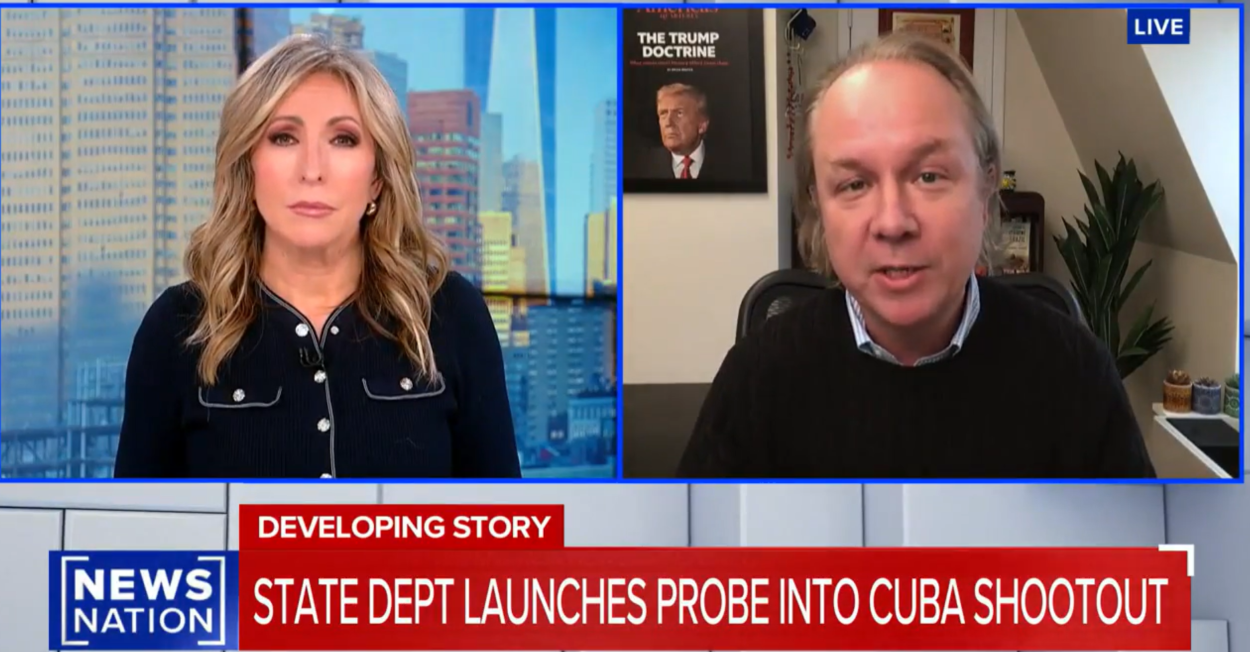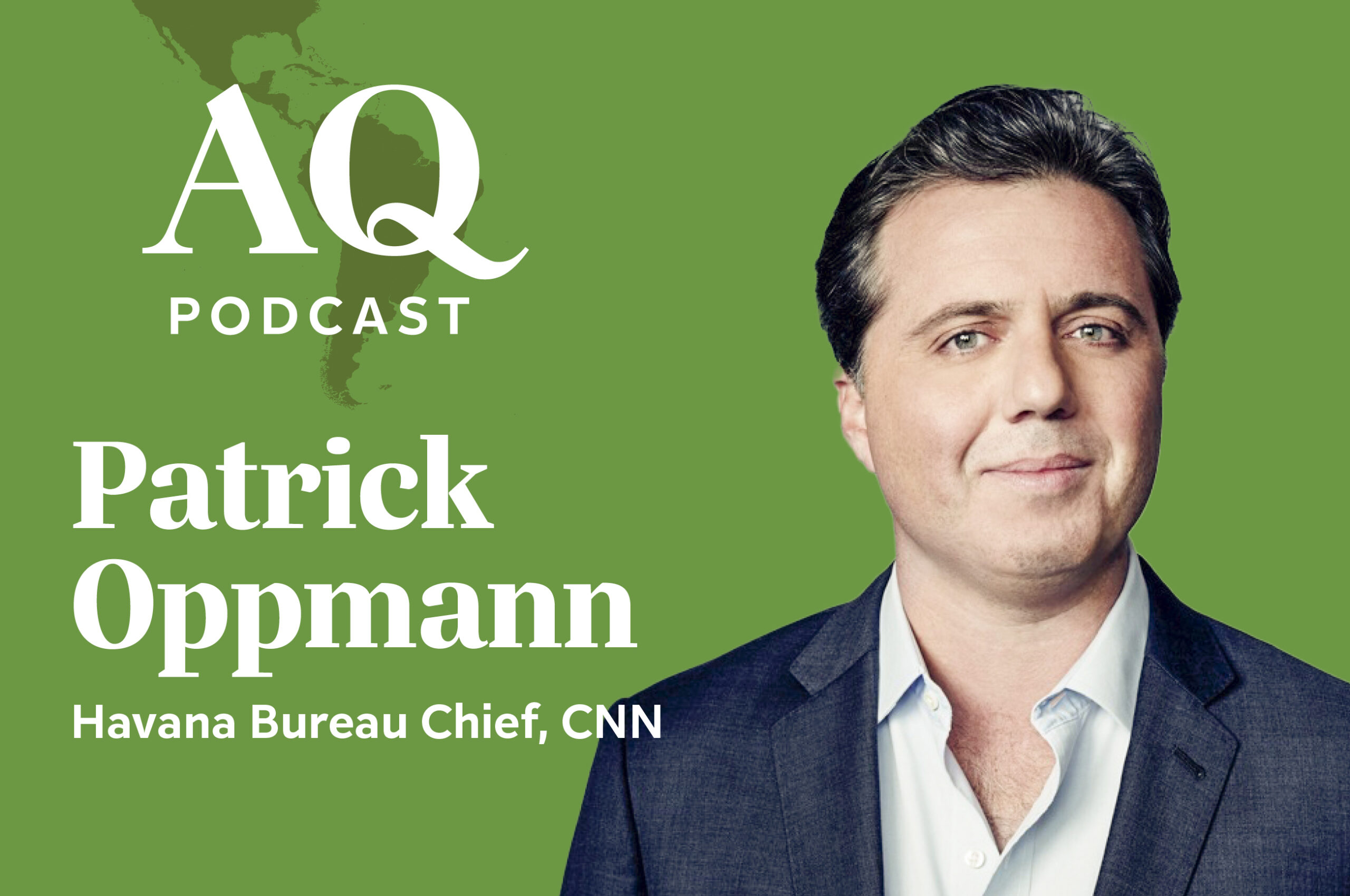Explainer: What Changes with the New Cuba Regulations?
Explainer: What Changes with the New Cuba Regulations?
AS/COA’s Cuba Working Group spells out Washington’s new approach to Cuba on financial services, telecom, travel, and more.
U.S. President Barack Obama took the historic step on December 17, 2014, of announcing that the United States would begin to normalize diplomatic relations with Cuba. He also announced that new regulations would ease existing restrictions on travel, telecommunications, and financial services, allowing for limited commerce and links to the nonstate sector, although most transactions between the United States and Cuba continue to be prohibited. On January 15 of this year, the U.S. Departments of Treasury and Commerce officially released the new set of regulations on travel and trade.
These changes are essential to ensuring the Obama administration’s goal of encouraging independent economic activity and engagement in Cuba, and are reforms that AS/COA’s Cuba Working Group have been advocating for years.
The group explains changes underway with the new regulations and gives a “before and after” snapshot of what this means for the following sectors:
- Telecommunications and internet
- Financial services and banking
- Entrepreneurship
- Travel and aviation
- Remittances
- Exports and imports
I. TELECOMMUNICATIONS AND INTERNET
Landscape
Cuba is an island of 11 million people with low cell phone and internet penetration rates. Roughly 2 million people have cell phone access, and as of 2012 about 5 percent of the population had access to uncensored internet—one of lowest internet penetration rates in the Western Hemisphere. Internet connectivity stands as a main priority of U.S. government policy.
Empresa de Telecomunicaciones de Cuba S.A. (ETECSA) is a government-owned telecommunications service provider for Cuba that offers telephone, internet, and wireless services. Cubans use state-run internet cafés to get online, which cost about $4.50 per hour (most home connections are illegal). Cuba’s one free, public wireless hub—managed by Cuban artist Alexis Leiva Machado, or “Kcho,” via his personal Internet connection approved by the Ministry of Culture—recently received ETECSA approval.
The new U.S. regulations allow U.S. companies to sell communications-related devices such as computers, mobile phones, modems, and related software and accessories that were previously only permitted for donation, and to offer specific telecommunications- and Internet-related services, provided certain conditions are met. The revised regulations also allow U.S. companies to travel to Cuba and explore business opportunities in this sector. The U.S. government will review, on a case-by-case basis, if there are still licensing issues when it comes to certain projects. U.S.-based telecom company IDT Corp has reached an agreement with ETECSA to provide direct international long-distance phone service between the United States and Cuba. Netflix announced in February that its streaming service will now be available in Cuba, and companies like Apple and Amazon are also exploring the market. Importantly, there are still restrictions on many telecommunications-related transactions with the Government of Cuba or entities owned or controlled by the Government of Cuba.
The telecommunications sector will require collaboration with the Cuban government to build the necessary infrastructure to meet its goals. The level of Cuban commitment to this particular area of reform remains to be seen.
Regulations
Before:
- Companies and individuals could donate—but not sell—devices technically referred to as consumer communication devices, or CCDs, to the Cuban people. CCDs include, in part, cell phones, tablets, printers, modems, and computers. Prior to2009, each donation required an individual validated license. A memorandum issued by Obama that year allowed U.S. providers to establish fiber-optic cable and satellite telecommunications facilities, as well as to enter into roaming agreements with Cuban providers in order to expand communication links between the United States and Cuba.
- The export of all telecommunications items and software required a case-by-case review from the Bureau of Industry and Security (BIS) at the U.S. Department of Commerce.
- Telecommunications providers needed an individual license from BIS to establish facilities that would link third countries to Cuba. In order for an individual license application to be approved, the company had to prove that the services were necessary to provide efficient and adequate communication between the United States and Cuba.
Now:
- The Support for the Cuban People (SCP) license exception authorizes commercial export and sale of eligible, albeit somewhat limited, items that allow Cubans to communicate with people in the United States and the rest of the world.
- The CCD license exception offers broader authorization for CCDs and related software needed to establish or update communications systems under these conditions.
- The regulatory change also permits the commercial sale of telecommunications devices and software to human rights organizations, NGOs, or individuals seeking to strengthen Cuba’s civil society.
- Telecommunications providers are allowed to establish the necessary mechanisms, including infrastructure, in Cuba to provide commercial telecommunications and internet services.
- Importantly, there are still restrictions on many telecommunications-related transactions with the Government of Cuba or entities owned or controlled by the Government of Cuba.
II. FINANCIAL SERVICES AND BANKING
Landscape
Credit card companies are looking into the possibility of entering the market, with MasterCard as the first to announce that customers were able to use their credit cards in Cuba as of March 1, 2015. Travelers will still need to contact their bank to ensure that the pieces are in place to process authorized transactions. It will also take time for the necessary infrastructure to be built or installed. While establishments like large hotel chains and some restaurants accept credit and debit cards, most casas particulares (private homestays) and private paladares (independent, non-state owned restaurants) conduct transactions in cash.
Further complicating the financial services landscape is Cuba’s designation as a State Sponsor of Terrorism, alongside Iran, Sudan, and Syria. This designation dates back to 1982, sparked by Cuba’s support of leftist insurgents in Latin America, and more recently for providing “safe haven” for Basque separatists and Colombian rebel groups, per the State Department in 2013. Yet, as the report states, “Cuba’s ties to [Basque separatist group] ETA have become more distant, and . . . about eight of the two dozen ETA members in Cuba were relocated with the cooperation of the Spanish government. Throughout 2013, the Government of Cuba supported and hosted negotiations between the FARC and the Government of Colombia aimed at brokering a peace agreement between the two.”
Obama has called for a review of Cuba’s designation on the State Sponsors of Terrorism list, and the U.S. State Department is conducting an assessment. If the president recommends that Cuba be removed from the list, he must submit a report to Congress certifying that Cuba has not supported international terrorism in the last six months. Then there will be a 45-day review period with Congress.
Due to its inclusion on the State Sponsors of Terrorism list, Cuba remains a high-risk, little-reward investment for many banks that may enter the Cuban market. In the past, OFAC has levied large fines against banks—ranging in the millions and billions of dollars.
Regulations
Before:
- U.S. travelers could only use cash for financial transactions, given that the use of credit and debit cards was prohibited.
- A third-party bank processed authorized transactions for imports and exports.
- There was a total freeze on all Cuban assets and financial dealings with Cuba (with limited exceptions for authorized activities).
- Banks were required to freeze the funds when receiving unauthorized wire transfers to or from Cuba.
Now:
- U.S. financial institutions and credit card companies are allowed, though not required, to facilitate the processing of authorized transactions of U.S. customers in Cuba.
- U.S. citizens are permitted and may be able to use their credit and debit cards, in addition to cash, in Cuba.
- U.S. financial institutions may open correspondent accounts at financial institutions in Cuba, but the reverse continues to be prohibited.
- Cuban individuals permanently relocated outside of Cuba will have their accounts unblocked and can participate fully in the U.S. financial system, to the extent they are not otherwise prohibited.
III. ENTREPRENEURSHIP
Landscape
There are close to five hundred thousand registered self-employed entrepreneurs in Cuba. As we detail in the CWG’s Action Memo to the President: Cuba and Entrepreneurship, for the first time in 55 years, a growing number of Cuban people can now determine their own destiny by starting businesses, and increasing their independence from the state. This burgeoning nonstate sector results from reforms on both sides of the Florida Straits. On the U.S. side, the expansion of travel and remittances authorized by Obama in 2009 and 2011 have helped Cuban citizens gain access to capital, know-how, inputs, and—in the case of U.S. visitors—customers. In Cuba, the series of economic reforms implemented under President Raúl Castro in 2011 provided more official space for private enterprise.
The current reforms allow for this sector to grow, providing a much-needed market for Cuba's new business class. However, challenges persist, ranging from the shipping of products (Cuba and the U.S. do not have direct mail services yet and global shipping companies are restricted from shipping between the two countries because of the U.S. embargo); to ensuring that payment can be accepted for goods (perhaps made easier by the new regulatory framework related to financial services); to prohibitively high taxes on imported goods from Cuba.
Regulations on Imports from Independent Cuban Entrepreneurs
Before:
- Washington prohibited importing Cuban goods and services to the United States, except in the cases of publications, artwork, informational materials, or up to $100 worth of Cuban merchandise.
Now:
- U.S. persons can engage in all transactions, including payments necessary to import certain goods and services produced by certified Cuban entrepreneurs and included on the State Department’s Section 515.582 list.
- The 515.582 list is a living document that continues to be updated, and authorizes the importation of certain goods and services produced by certifiably independent Cuban entrepreneurs. The list allows for the importation of anything that’s not specifically prohibited. Certain prohibited items include rum, tobacco products, sugar, vehicles, and prepared foods.
IV. TRAVEL AND AVIATION
Landscape
While tourism remains illegal under the Helms-Burton Act (1996), U.S. citizens can now travel under general licenses to engage in certain specified activity such as conducting business-related transactions, participating in professional meetings, or conducting professional research. This means that the traveler will just need to check a box stating they are traveling in one of the categories of authorized travel. Previously, the United States offered limited air travel to Cuba for companies holding special licenses to operate flights. Charter flights were, therefore, the only legal option for traveling to Cuba. U.S. Customs and Border Protection permitted 19 U.S. airports to offer licensed flights to Cuba, yet not all airports took advantage of this authorization. Depending on airline agreements currently underway, commercial carriers will begin to offer flights to Cuba from various U.S. cities. Until all agreements are completed, expanded charter flight service—such as the recently announced weekly flight from New York’s JFK airport to Havana—will continue to cover the market.
Regulations
Before:
- U.S. citizens wanting to travel to Cuba had to go under either a specific license or a general license. General and specific licenses were available to engage in certain transactions otherwise prohibited by the regulations.
- The following categories of travel were permissible upon receipt of specific licenses that had to be issued by OFAC on a case-by-case basis: family visits; official U.S. government, foreign government, and intergovernmental-organization business; journalistic activity; professional research and meetings; educational and religious activities; public performances; clinics and workshops; athletic and other competitions and exhibitions; support for the Cuban people; humanitarian projects; private foundation and research or educational institute activities; exportation, importation, or transmission of information or information materials; and certain authorized export transactions.
- All Cuban visas required approval from OFAC.
- Strict per diem spending rate compliance ranged from $84 to $188, based on the city.
- Travelers returning from Cuba were restricted in what could be brought back; tobacco and alcohol were expressly prohibited.
- All travel, including charter flights, to Cuba had to be arranged through a licensed third-party travel service provider.
- OFAC required global insurance companies to include an exemption for Cuba.
Now:
- U.S. citizens can still travel under the same categories of licenses that were previously available, but they no longer need to apply for and wait to receive specific licenses that were only issued if approved by OFAC.
- While Cuban visas are still required for travel, they no longer need OFAC approval. U.S. travelers can arrange travel directly with hotels and airlines, without a third-party service provider.
- OFAC eliminated the per diem rate for U.S. travelers. On top of that, U.S. travelers under a general license will be able to participate in transactions typical of travel within Cuba, such as paying for living expenses and the purchasing goods for personal use in country.
- U.S. travelers who fall under one of the 12 general license categories can return to the United States with up to $400 worth of goods acquired in Cuba for personal use, including up to $100 of alcohol or tobacco products.
- Pending airline agreements and U.S. Department of Transportation approval, travelers can fly directly to Cuba with national and international carriers.
- Global insurance companies can eliminate the Cuba exemption and cover all travelers. Additionally, U.S. insurers can now provide global health, life, or travel insurance policies for third-country residents traveling to or within Cuba.
- Travel agents and airlines do not need a specific license from OFAC to provide authorized travel and air carrier services.
Landscape
Obama announced measures in 2009 and 2011 to ease restrictions on remittances to Cuba. In 2009, the Obama Administration announced that Cuban Americans would be able to send unlimited remittances to family members in Cuba. In 2011, the administration went further, allowing any American to send up to $500 per quarter to non-family members in Cuba (excluding to senior Cuban government officials or senior members of the Cuban Communist Party) to support private economic activity and other activities, as well as to send remittances to religious organizations under a general license. These were similar to measures in place under the Clinton administration, but later scaled back by President George W. Bush. The easing of remittance regulations was taken to “help strengthen Cuban civil society, and make Cuban people less dependent of the Cuban state.” The measures coincided with the 2011 reforms announced by the Cuban government when, in an effort to ease bloated state payrolls, it began the process of laying off thousands of state workers and allowing for the creation of private enterprise. The new regulations markedly increase the amount of remittances that any American can send to Cuba, boosting the administration’s goal of empowering the Cuban people.
Regulations
Before:
- Each quarter, U.S. citizens could send $500 in general remittances to Cuban nationals, excluding certain government and Communist Party officials.
- Donations by individuals and NGOs in Cuba for humanitarian projects, support for the Cuban people, and support for private business development in Cuba required a specific license.
- Remittance forwarders—any person or noncommercial organization that provided payment or donation forwarding services—needed a specific license.
- A U.S. traveler could carry $3,000 in total remittances to Cuba per trip.
- Gift parcels required individual licenses from BIS, and consolidated gift parcels could not be shipped together.
Now:
- Each quarter, U.S. citizens can send up to $2,000 in generally licensed remittances for Cuban nationals, with the exception of certain government and Communist Party officials.
- Donations by individuals and NGOs for humanitarian projects, support for the Cuban people, and support for development of private business are covered under a general license.
- A general license covers remittance forwarders.
- A U.S. traveler can carry $10,000 in total remittances to Cuba per trip.
- Under the new Gift Parcels and Humanitarian Donations (GFT) license exception, individuals can send multiple gift parcels in a single shipment.
VI. EXPORTS AND IMPORTS
Landscape
The Cuban Democracy Act (1992) and Helms-Burton expressly prohibited lifting the trade embargo until Cuba holds fair and free elections and institutes a democratic government without the Castros, effectively prohibiting trade between the two countries. While the embargo limits U.S. companies and their foreign subsidiaries from trading directly with Cuba, the United States is Cuba’s fifth largest exporter, due in large part to exceptions for humanitarian aid, and some agriculture products and medical supplies. The new regulations expand the list of what can be exported and imported by including authorization for trade with Cuba’s non-state sector and cooperatives, as well as redefining cash in advance payment.
Regulations
Before:
- Individuals and companies needed a specific license from the OFAC in order to conduct business or invest in Cuba. In most cases, transactions were conducted with “cash in advance,” which meant that cash had to be received before sending the shipment.
- With the exception of limited items eligible for licensing/authorization (medicine, medical supplies, food, and agricultural commodities), exporting products, technology, or services to Cuba or any Cuban national was prohibited. However, U.S. law did not prohibit or require a license for donations of food to independent NGOs or individuals in Cuba.
Now:
- Regulations redefined “cash in advance” to mean that cash must be received before transferring title and control, not before shipment.
- BIS authorizes exports for the environmental protection of U.S. and international air quality, and waters and coastlines.
- While the SCP license exception does not authorize the export of all items on the Commerce Control List, U.S. individuals and companies may export certain items to human rights organizations, NGOs, and individuals. Exports must improve living conditions, strengthen civil society, improve communications, and support independent economic activity in Cuba. Examples of eligible items may include:
- Building materials, equipment, and tools for use by the private sector to construct or renovate privately owned buildings—such as homes, businesses, places of worship, and social or recreational buildings; tools and equipment for private agricultural activity; tools, equipment, supplies, and instruments for private-sector entrepreneurs; and items for use by news media personnel and U.S. news bureaus.
- Additionally, U.S. companies and individuals may donate or temporarily export items for use in scientific, archaeological, cultural, ecological, and educational activities; historic preservation; or sporting activities.
- The State Department authorizes all transactions necessary to import goods and services produced by certain independent Cuban entrepreneurs.
Further Reading
- Frequently asked questions from the Office of Foreign Assets Control (OFAC) of the U.S. Department of Treasury
- New regulations from OFAC
- Frequently asked questions from the Bureau of Industry and Security (BIS) of the U.S. Department of Commerce
- New regulations from the BIS
This explainer is a product of the AS/COA Cuba Working Group, which works to create openings for the U.S. private sector, Cuban Americans, philanthropists, and civil society to build direct relationships in Cuba to advance dialogue, market reforms, economic development, and the development of small and medium enterprises in Cuba. Its members include telecommunications companies, the financial services industry, prominent law firms, agriculture and food production companies, as well as academics, NGOs and think tanks, and civil society advocates.
It was produced by Alana Tummino, director of policy, and Leani García, policy associate, in collaboration with Carin Zissis, editor-in-chief of AS/COA Online, and Sarah Bons. For media inquiries or to speak with an expert on this topic, please contact Adriana La Rotta in our communications office at: alarotta@as-coa.org.







